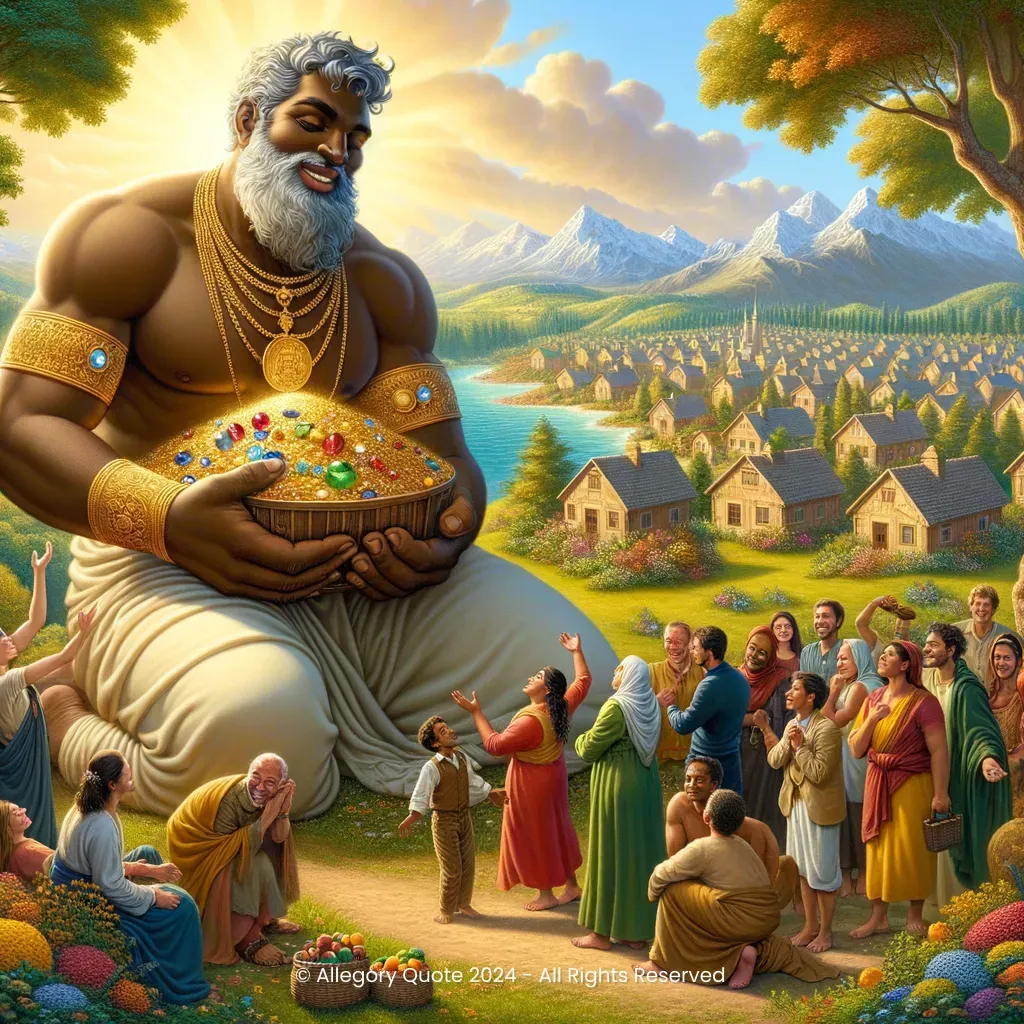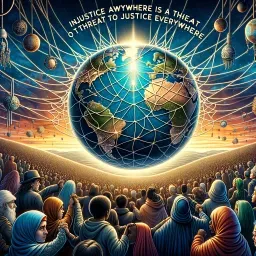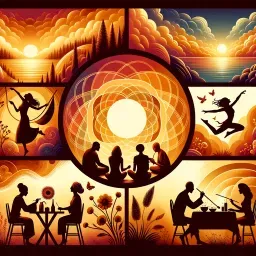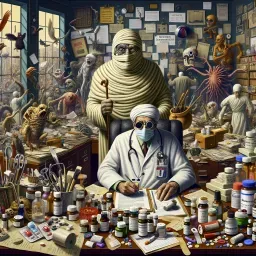”We make a living by what we get,
but we make a life by what we give“

0
0
0
0
- Meaning
- This phrase juxtaposes the concepts of "living" and "life." Making a living refers to earning money, achieving financial success, and meeting basic needs through what we get from our jobs or businesses. In contrast, making a life emphasizes the importance of giving to others, fostering relationships, and creating meaningful experiences. Essentially, it suggests that true fulfillment and purpose come from generosity and contributing to the well-being of others, rather than just accumulating material wealth.
- Allegory
- The gentle giant symbolizes someone who possesses great power or wealth. The treasure chest in one hand represents material gains and the means to make a living. The fruit basket in the other hand signifies the act of giving and sharing with others. The villagers’ joyful and unified response underscores the positive impact of generosity on a community. The serene landscape in the background visually conveys the peace and prosperity that stem from selfless acts, reinforcing the phrase's message that giving enriches life far beyond material wealth alone.
- Applicability
- This phrase can be applied to personal life in various ways. It encourages individuals to go beyond mere survival and financial gain, urging them to engage in acts of kindness, volunteerism, and community support. Practicing this philosophy can lead to a richer, more fulfilling life, cultivating deeper connections and leaving a positive impact on society. Professionally, it suggests that helping colleagues and contributing to the team's success can be more rewarding than personal accolades or financial incentives alone.
- Impact
- This phrase has had a significant impact culturally and socially. It is often cited in motivational speeches, self-help literature, and philanthropic campaigns. Its message resonates with a wide audience, encouraging a shift from self-centered behaviors to a more community-oriented and empathetic approach to life.
- Historical Context
- The exact historical context of the phrase is debated, but it is often attributed to the mid-20th century, reflective of the era's discussions on self-fulfillment, community, and altruism. Britain, during and after World War II, saw significant societal change and an increased emphasis on the importance of solidarity and mutual support.
- Criticisms
- Criticisms of this phrase may arise from different interpretations of what makes life meaningful. Some might argue that self-care and personal success are also vital components of a fulfilled life. Additionally, there may be a critique that glorifying giving without addressing the necessity of self-sufficiency can lead to burnout or neglect of one's own needs.
- Variations
- Variations and interpretations of this phrase can be found in many cultures, emphasizing the value of community, support, and selflessness. In eastern philosophies, similar sentiments appear as ideas of karma and interconnectedness, advocating for living in harmony with others and contributing positively to society.
-

If you tell the truth, you don't have to remember anything.
-

Injustice anywhere is a threat to justice everywhere.
-

It's not the years in your life that count, it's the life in your years.
-

Greed is good.
-

Love is composed of a single soul inhabiting two bodies.
-

With great power comes great responsibility.
-

Living is not necessary, navigating is.
-

Not all those who wander are lost.
-

Public office is the last refuge of the incompetent.
-

Politics is the art of looking for trouble, finding it everywhere, diagnosing it incorrectly, and applying the wrong remedies.
-

I refused to be a fool dancing on the strings held by all those big shots.
-

He who dares wins.
No Comments